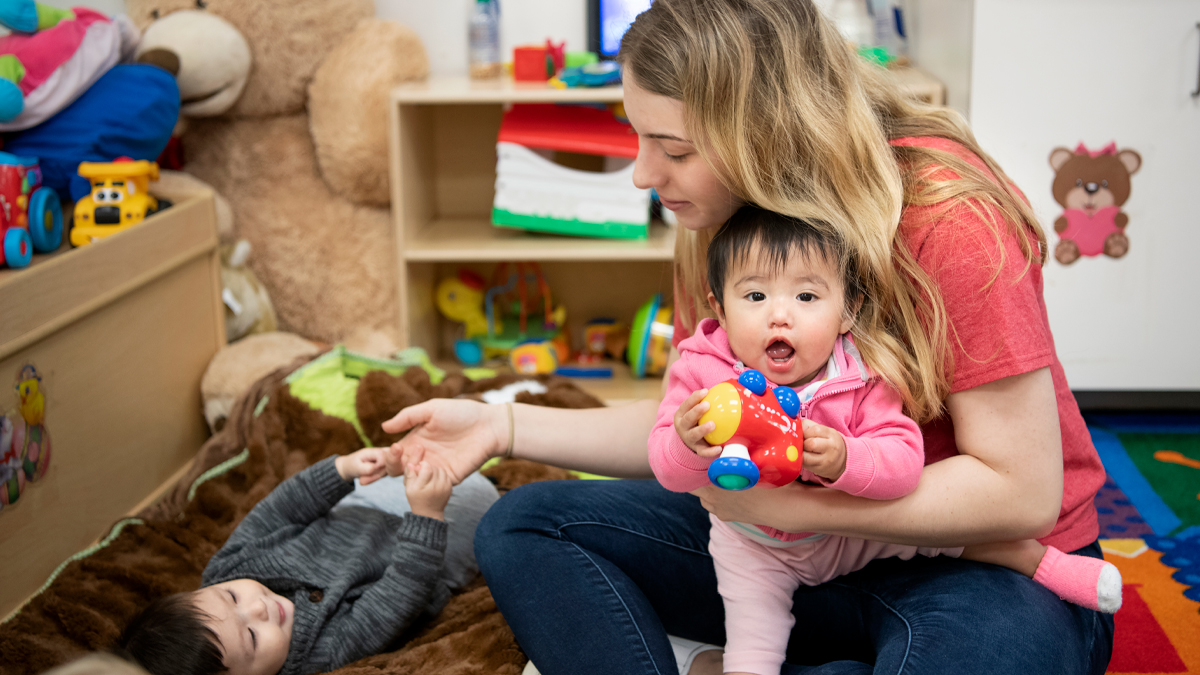Persistence rewarded for first-generation student
A first-generation student finds her path to serving the underserved

Jessica Zimmer arrived at Ohio State, her dream school, in August 2016 with visions of becoming a doctor.
As a first-generation student with no physicians in the family, she saw a difficult road ahead. Zimmer did not, however, see herself struggling as much as she did her first semester.
Thoroughly frustrated with general chemistry, Zimmer finally broke down during Senior Lecturer Rosemary Bartoszek-Loza’s office hours.
“I started crying in front of everyone. I didn’t know what I was doing,” says Zimmer, who graduated from London High School, a small, rural school. “I had never failed anything. I just felt really lost.”
Bartoszek-Loza took Zimmer under her wing, teaching her how to prepare and learn at the university level.
“At a big university like Ohio State, that took me by surprise — that a professor would do that,” Zimmer says. “She knew I needed a path, someone to lift me up. Her help served me further than knowing atoms or the periodic table.”
Zimmer is now a fourth year pre-med student majoring in biology and Spanish with a resume packed full of internships, volunteering, research, study abroad, reference letters and affiliations. This past spring, she nailed her MCAT (Medical College Admission Test) and spent the summer applying to 20 medical schools — including Ohio State’s — all over the country.
She’s even a chemistry tutor.
As a first-generation student – a student from a family in which neither parent earned a four-year bachelor’s degree – who began her Ohio State experience humbled, she says her success has come from building relationships and getting involved.
Both started before she attended her first class.
So many places to get involved, so many rewards through involvement
Prior to her first semester, Zimmer signed up to receive emails through the Undergraduate Research Office. One lab opportunity at the Endocrinology Research Associates caught her eye. After surprising herself by getting the internship, she began doing research for Dr. Elena Alexia Christofides ’91, ’95 MD.
Along with gaining research experience, Christofides paid for and helped Zimmer gain her Phlebotomy Certification — allowing her to draw blood. Zimmer is currently the clinical research coordinator for the lab, supervising eight college interns.
“(Christofides) taught me so much about the medical school process,” she says. “I’ve shadowed her since my freshman year and learned so much about the patient-doctor relationship and the pre-med track.”
Among the many clubs and organizations Zimmer joined included the medical fraternity Phi Delta Epsilon, which helped her connect with other pre-med and med school students and learn more about Ohio State’s resources. It was there she was introduced to La Clinica Latina, a free student-run medical clinic for the Spanish-speaking community where Zimmer began volunteering in 2017.
“I’m so grateful for finding that clinic,” says Zimmer, the undergraduate lab coordinator at La Clinica Latina. “It’s my absolute passion.”
Zimmer’s ability to speak fluent Spanish and communicate medical terminology at the clinic improved vastly after she took advantage of a study abroad opportunity through the Spanish department. In the summer of 2018, she traveled to Valparaiso, Chile, to work as a clinic volunteer at Consultorio Esperanza, a government hospital located in an impoverished area. There, Zimmer assisted health professionals.
“It was an immersion and it gave me so much confidence in my fluency,” Zimmer says.
La Clinica Latina and her study abroad opportunity brought Zimmer face-to-face with physicians who embody what she hopes to become: a doctor who serves the underserved. Her goal is to become an obstetrician to women who struggle with language and health care barriers.
“Minority communities have a much higher infant mortality rate and that’s unacceptable,” Zimmer says. “Imagine how hard it is to be an immigrant in an English-speaking world, to have nowhere to turn. Because of the language barrier, they don’t think they can seek help. I want to help these women get the resources they need, to have healthier babies. I want to make a difference for them."